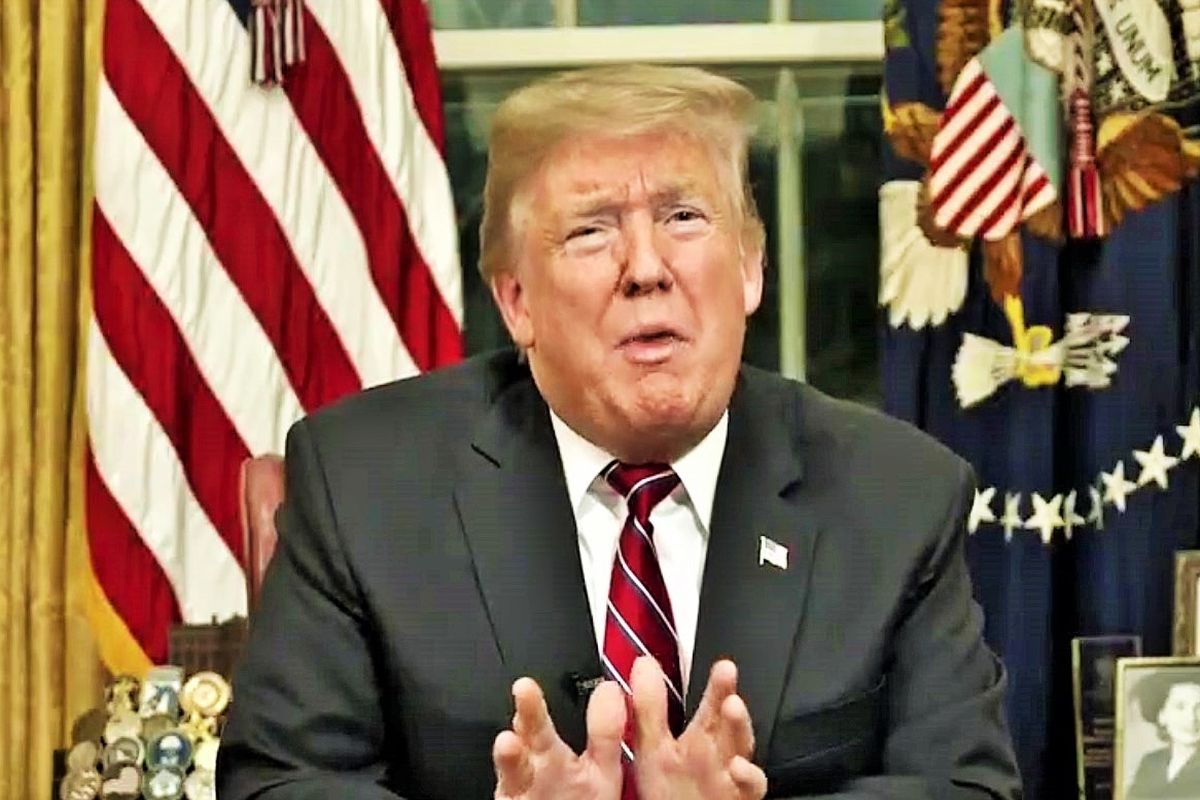The US congressional panel on Friday gave President Donald Trump a deadline in one week to say whether his legal counsel intends to introduce evidence and call witnesses in upcoming impeachment proceedings that could lead to formal charges of misconduct within a few weeks.
The Democratic-led House Judiciary Committee, which is due to begin weighing possible articles of impeachment against Trump next week, sent a two-page letter to the president setting a deadline of 5 p.m. EDT (2200 GMT) on Dec. 6 for the president’s counsel to specify intended actions under the committee’s impeachment procedures.
Advertisement
Panel Democratic Chairman Jerrold Nadler set the same deadline for Republican lawmakers on the committee to notify him about intended witnesses and evidence and scheduled a Dec. 9 meeting to consider the matter.
The Judiciary panel is expected to hold a series of impeachment proceedings, including an initial hearing on Wednesday at which legal experts are due to testify about the constitutional grounds for impeachment.
The impeachment probe is looking into whether Trump abused his power to pressure Ukraine to launch investigations of political rival Joe Biden and a discredited conspiracy theory promoted by Trump that Ukraine, not Russia, interfered in the 2016 U.S. presidential election.
Earlier this week, House of Representatives Judiciary Committee said that Trump’s impeachment hearing will be scheduled for December 4, starting a new phase of the inquiry that could lead to formal charges against the president within weeks.
Trump is not required to attend the hearing. But the move allows the president and his legal team access to congressional impeachment procedures that he and other Republicans have denounced as unfair, partly because the White House has not been able to call or cross-examine witnesses.
Last week, David Holmes, a staffer from the US Embassy in Ukraine, who also testified described a conversation he overheard between Trump and US Ambassador to the European Union Gordon Sondland, which occurred on July 26, a day after a Trump-Zelensky phone call that triggered an anonymous whistleblower complaint and the impeachment inquiry.
Initially, President Trump described the impeachment probe against him as “witch hunt”, saying he was “too busy” to watch it.
In October, President Trump opposed impeachment enquiry, saying that there should be no public hearings during the House of Representatives’ impeachment enquiry against him, and directed White House Chief of Staff Mick Mulvaney not to appear before the committees investigating Trump’s phone call to Ukraine.
Late September, the impeachment inquiry, which House Speaker Nancy Pelosi initiated over a complaint by an anonymous whistleblower, is looking into White House’s alleged efforts to withhold military aid to have Ukraine investigate a Trump’s political rival, Joe Biden.











